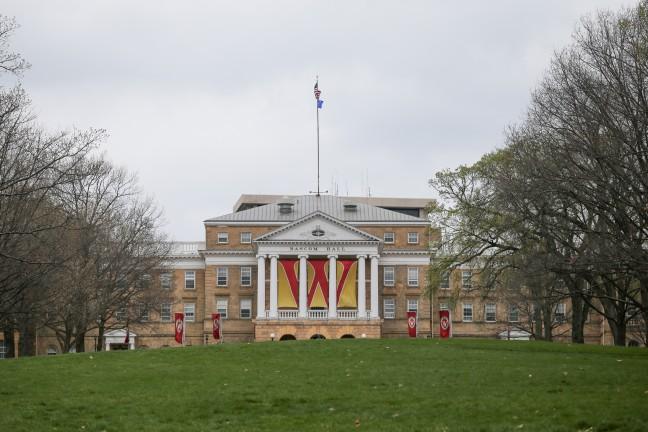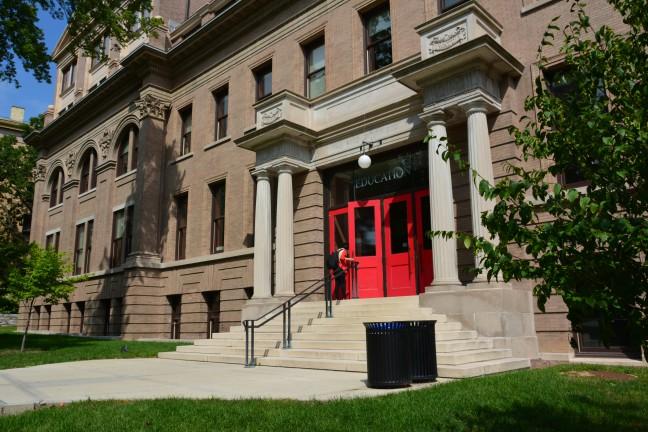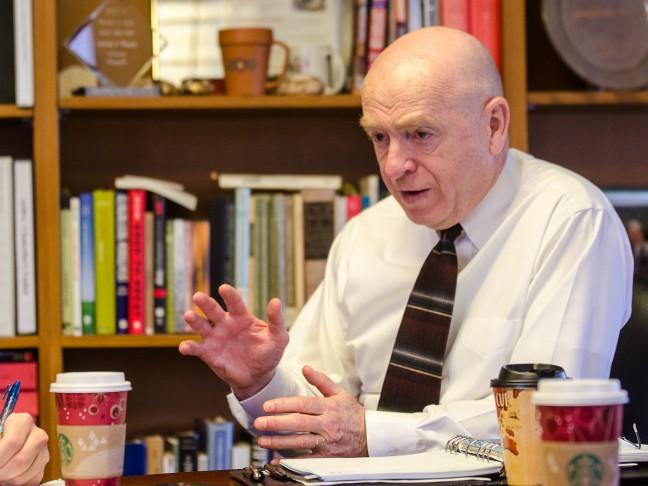The University of Wisconsin Board of Regents meetings focused on challenges in higher education, hearing from a UW System administrator on the system’s efforts in closing gaps and a national leader to give the national context.
Molly Corbett Broad, president of the American Council on Education, spoke to the regents Friday regarding the challenges American higher education faces. She said now is also a time to challenge conventional wisdom.
Conventional wisdom, Broad said, is an “iron triangle” of cost, access and quality, in which one cannot change without changing the other.
“The belief is you can’t improve quality unless you also increase cost, and you can’t expand access without increasing cost,” Broad said. “Well, I think that all of that iron triangle issue is now being challenged in the face of all these pressures, and it’s precipitating some very interesting innovations.”
She said this is no longer a “business as usual” time for higher education and outlined three ways universities are innovating and improving education.
One of those ways is to bring “big data” to higher education and develop programs that would make recommendations to students based on patterns they recognize, she said. Another is to offer massive open online courses like Coursera and Udacity.
Broad praised the UW System for being a leader in using the third strategy, citing the system’s flexible option degree set to start next fall. Under that program, students can earn a UW System degree online based on assessments, where they can show prior knowledge from past courses or work experience, she said.
“It incorporates many of the emerging innovations that are enabled by technology, competency-based education, self-paced learning, modular coursework, customizing the learning,” Broad said. “These tools are enabling the delivery of the highest quality educational experience and do so at a more affordable price.”
Broad reminded regents of the much talked-about issue of declining state funds leading to increases in tuition. She said more than ever, universities depend on tuition more than any other revenue source, although she cautioned simply raising tuition is “not a sustainable strategy.”
System official addresses success data
Mark Nook, the UW System’s top academic affairs officer, reported the system has made progress on reducing gaps in graduation and retention rates between minorities and non-minorities. Between high and low-income students, however, the gaps have worsened, he said.
Between minorities and non-minorities, the UW System reduced the gap in retention rates from an 11 percent baseline to 8 percent today, and the system is on track to reduce that to 5 percent by 2015. Nook said the improvement can be attributed a number of diversity plans the UW System implemented in 2005.
However, the retention rate gaps between Pell grant students and non-Pell grant students has increased from the 5 percent baseline to 7 percent. The gap between both groups in six-year graduation rates increased as well, from the 12 percent baseline to 15 percent in 2006.
The reason why the gaps have grown is the yearly tuition increases that began in 2005 and the 2008 recession, Nook said.
“We really almost dared these students to finish,” Nook said.
Despite the growth in those gaps, the UW System has seen positive results in overall graduation rates since the 1980s.
This has happened even as students work more hours than in past years, Nook said. If they were paid minimum wage in the 1980s, students needed to work about 600 hours a year to recoup their costs, but that number has risen to 1500 hours today.
“Students are working more, yet we have increased our four-year graduation rate from 17 percent at that time to upwards of 29 percent, and we’re working with a student body that is economically less advantaged than they were at that time,” Nook said. “That’s a really positive message.”
The UW System is also giving out a record number of degrees and is on track to meet its goal of gaining 80,000 more graduates by 2025.















